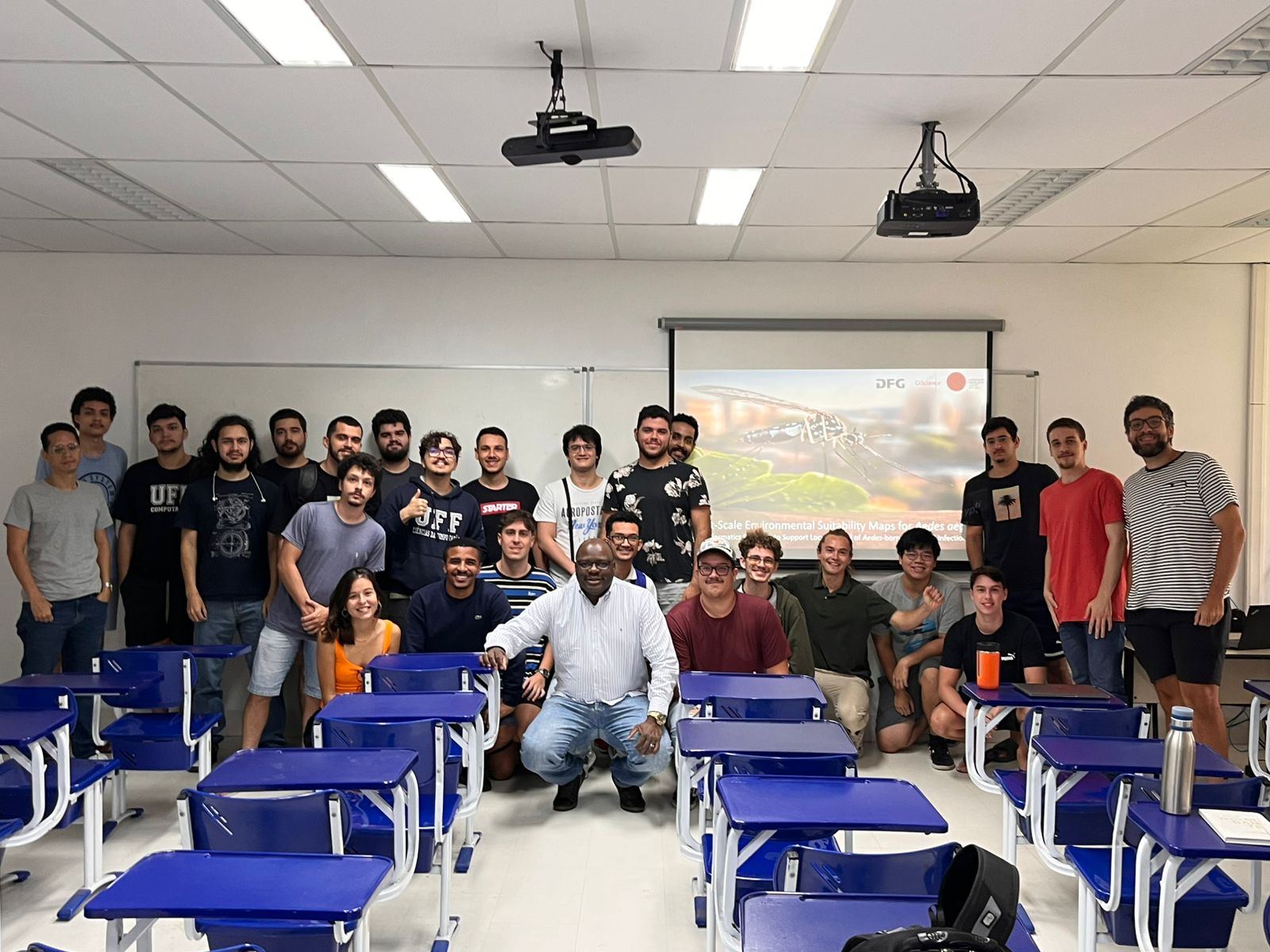Building on ongoing efforts to enhance urban health management and mosquito-borne disease monitoring in the municipality of Rio de Janeiro, PhD candidate Steffen Knoblauch returned to the city for a second visit deepen collaborations and explore further applications of his research findings. He delivered lectures at several research institutions such as Universidade Federal do Rio de Janeiro (UFRJ), Instituto Nacional de Matemática Pura e Aplicada (IMPA), and Universidade Federal Fluminense (UFF), and engaged in discussions with municipal and research organizations, including the Center for Epidemiological Intelligence and the Rio’s Smart City Division of the mayor office. These engagements provided an opportunity to bridge academic insights with practical implementations.
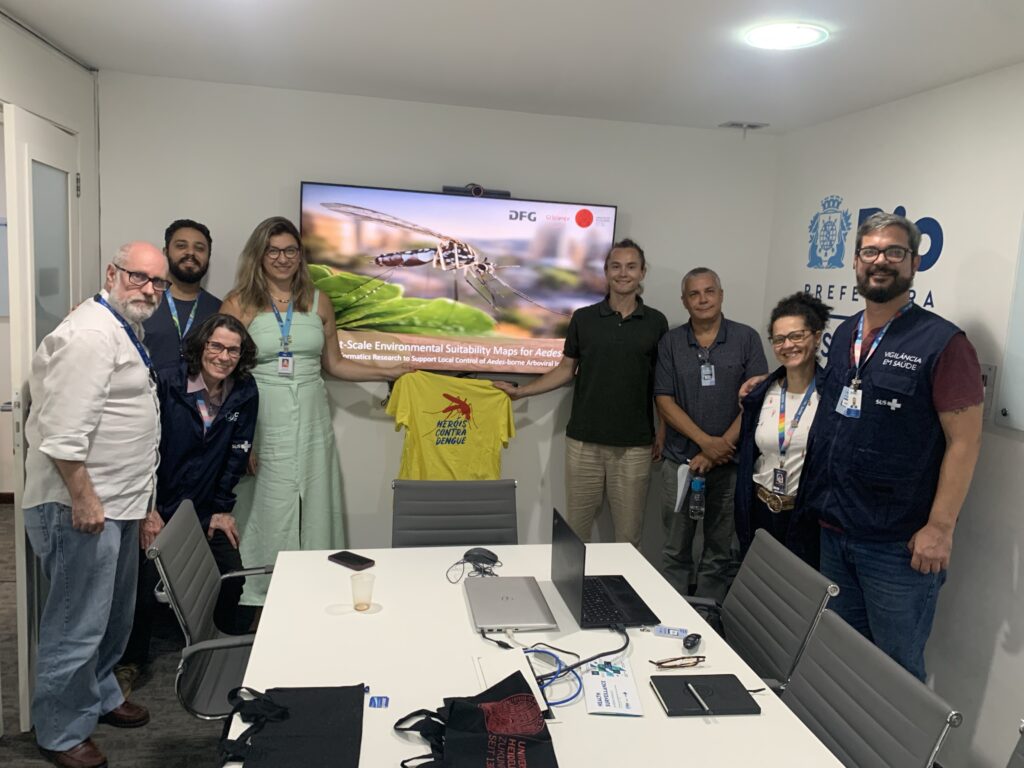
Talk and discussion on Steffen’s PhD research on “Habitat-scale environmental suitability mapping for Aedes aegypti” at the center of epidemiological intelligence in the municipality of Rio de Janeiro
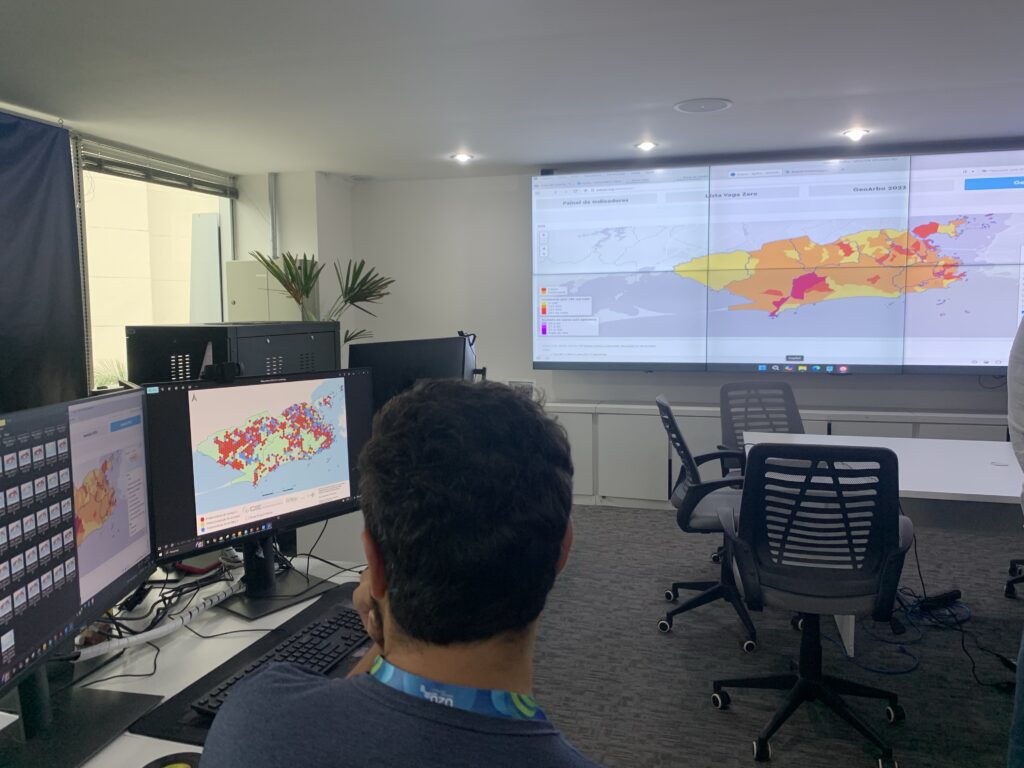
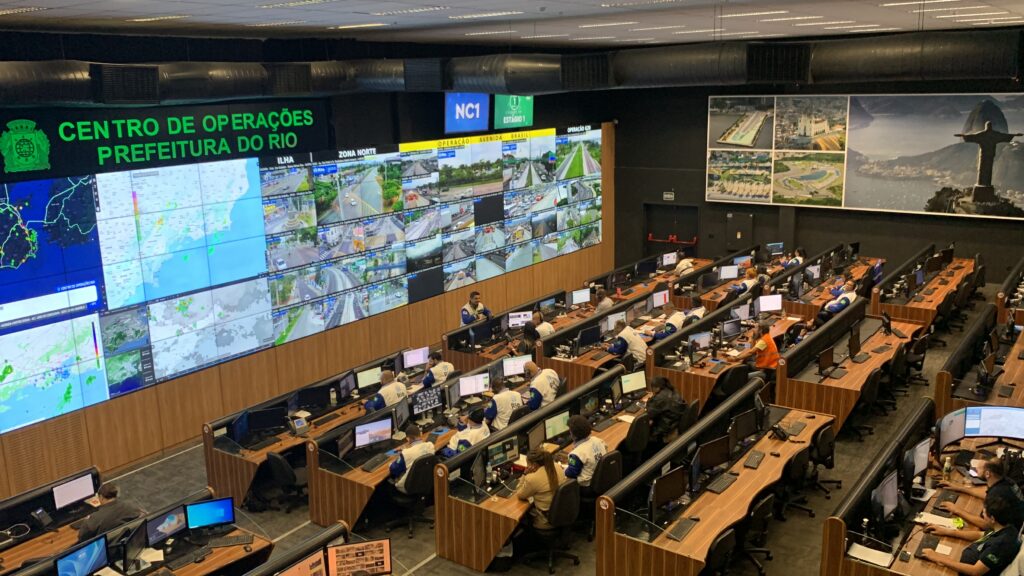
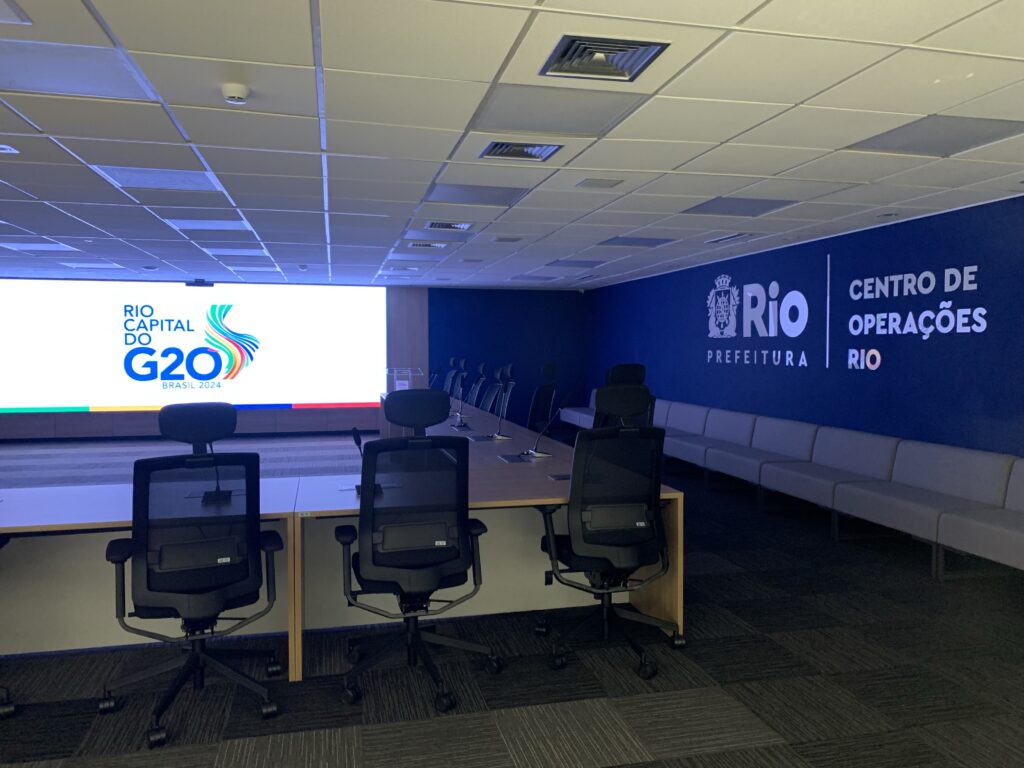
Centro de Operações Rio – Prefeitura do Rio de Janeiro (Rathaus von Rio de Janeiro)

Applied Computer Science Lecture at Universidade Federal Fluminense (UFF) in Niterói
Steffen also visited collaborators at Fiocruz, one of the world’s leading research institutes in tropical disease studies, to discuss his research and potential follow-up projects. During his visit he gained insights into the entomological wet labs responsible for cultivating Wolbachia mosquitoes – mosquitoes infected with a natural bacterium that reduces their ability to transmit diseases like dengue, Zika, and chikungunya. This innovative and highly effective disease control method, for which Steffen has created guidance maps in his PhD research, is not only widely applied but has proven successful in reducing disease occurrence during epidemic stages in Brazil and around the world.
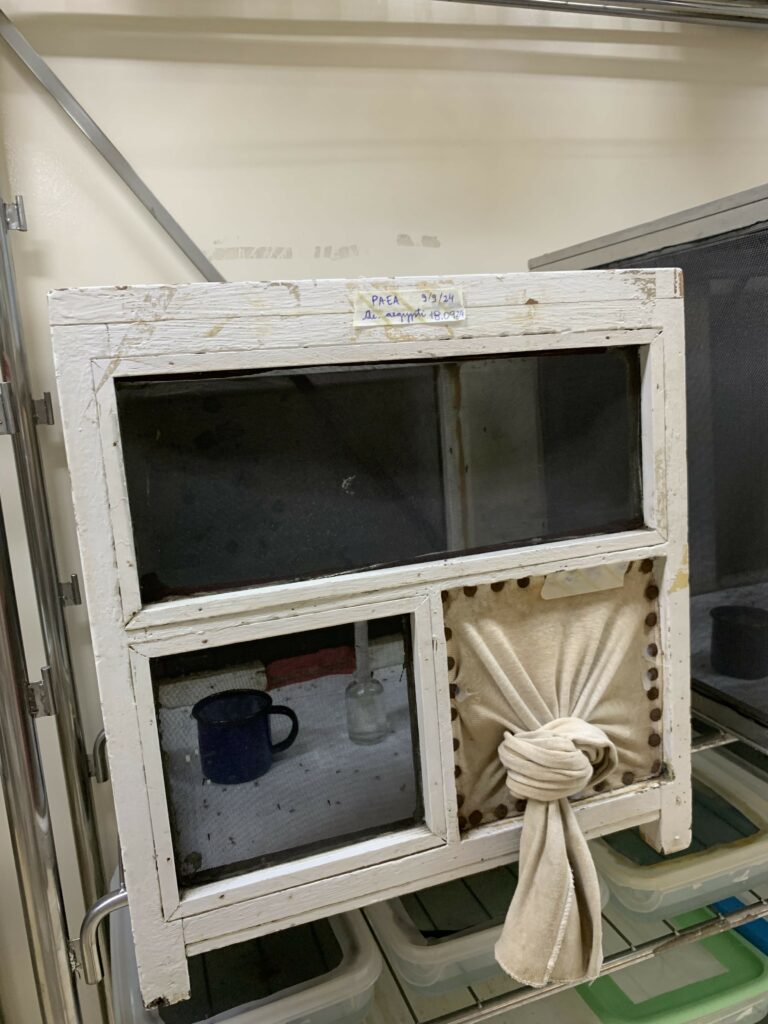
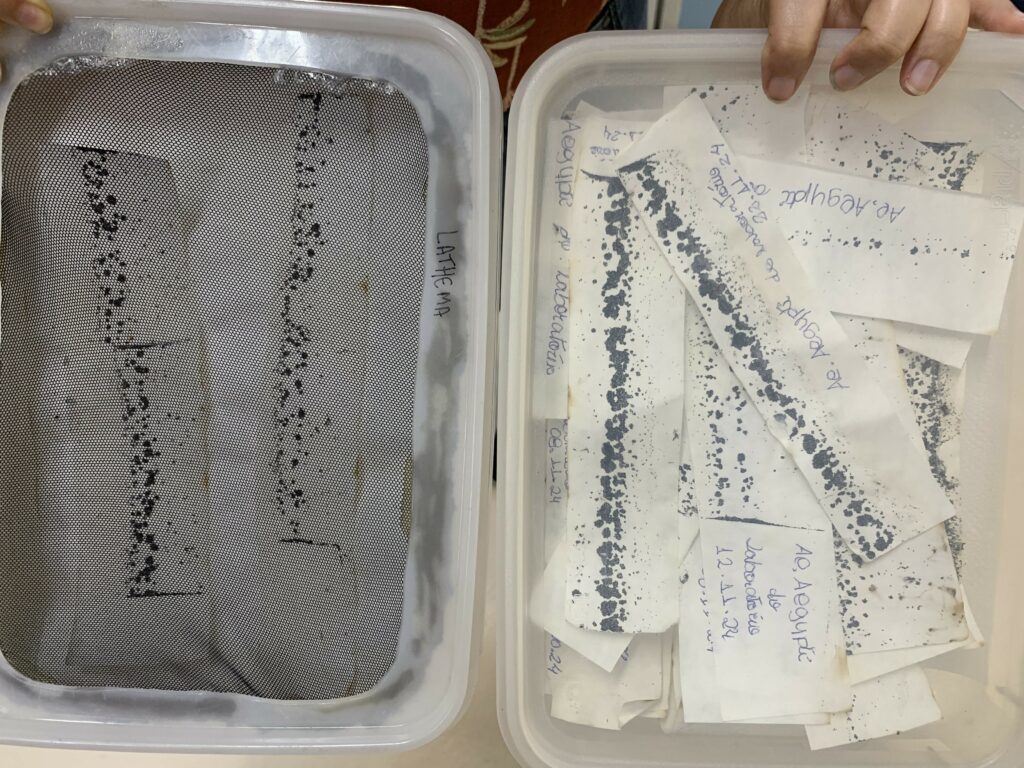
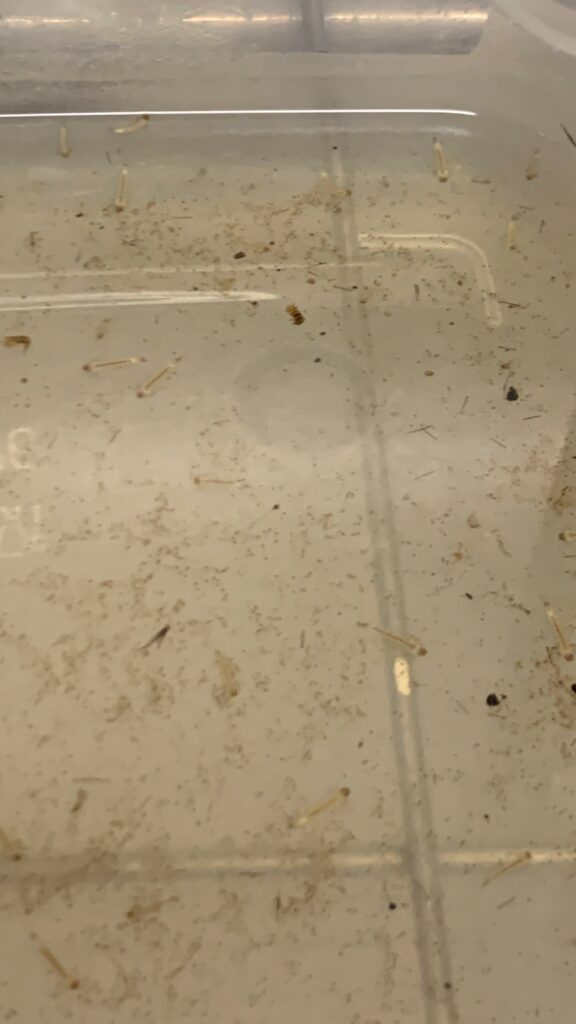
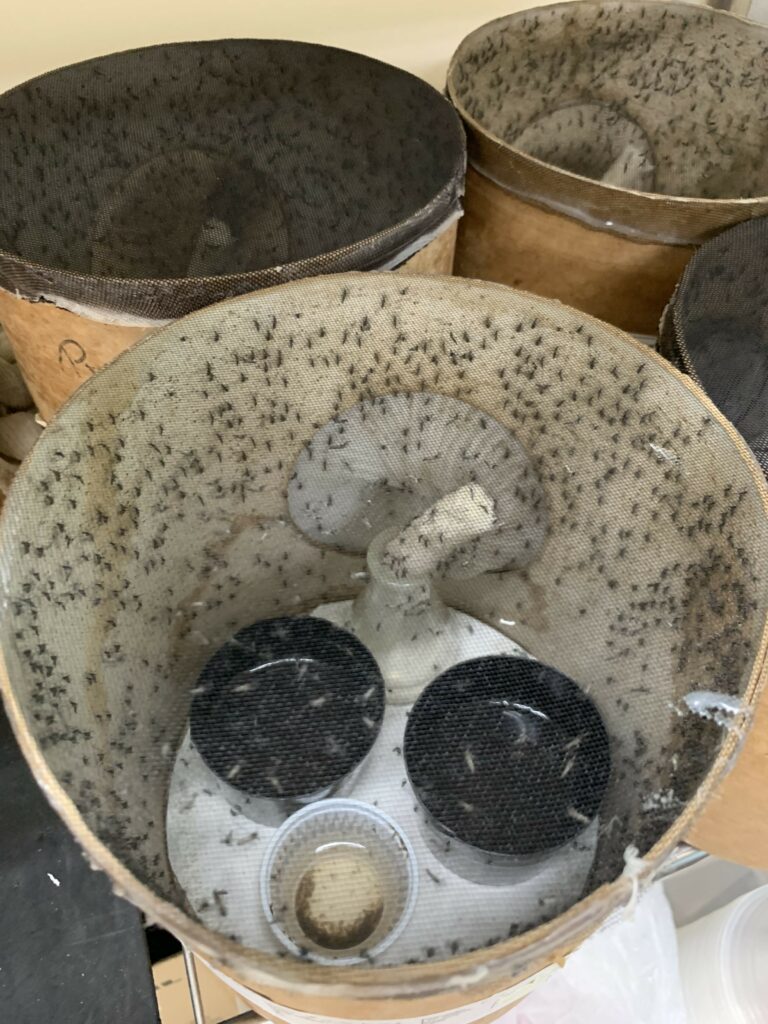
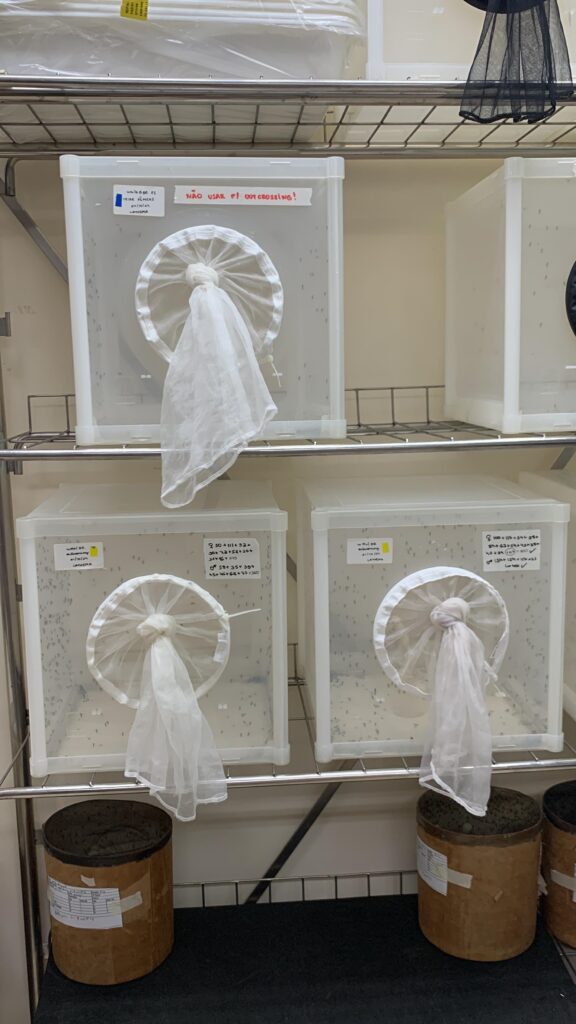
Aedes aegypti adult mosquitoes
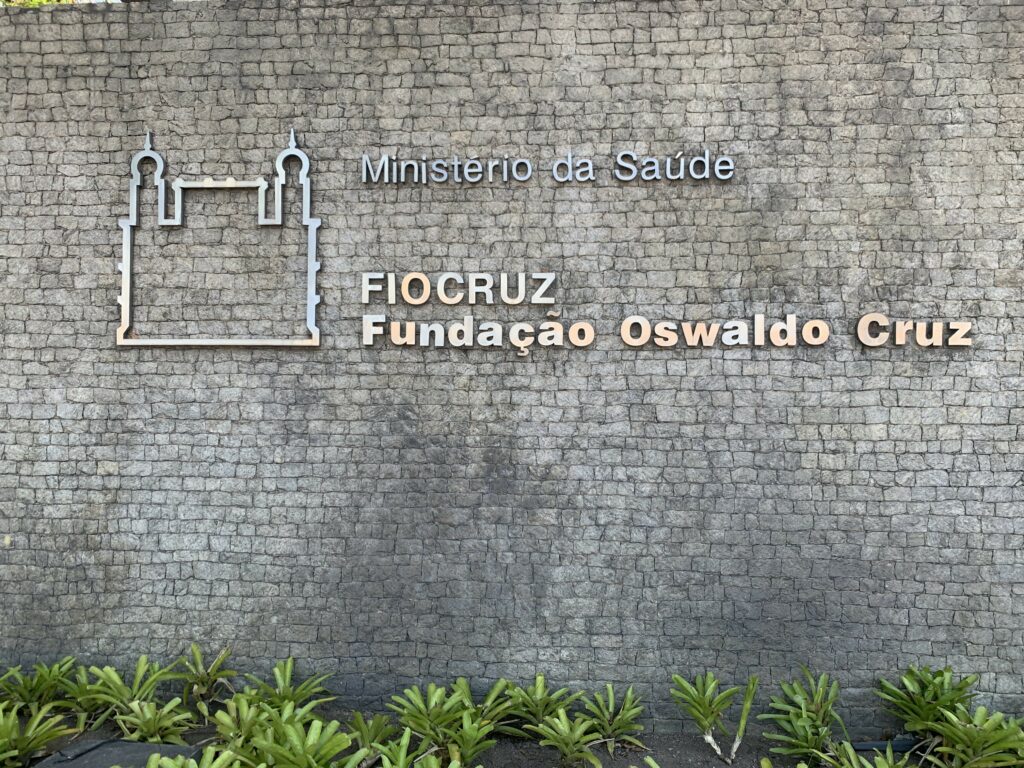
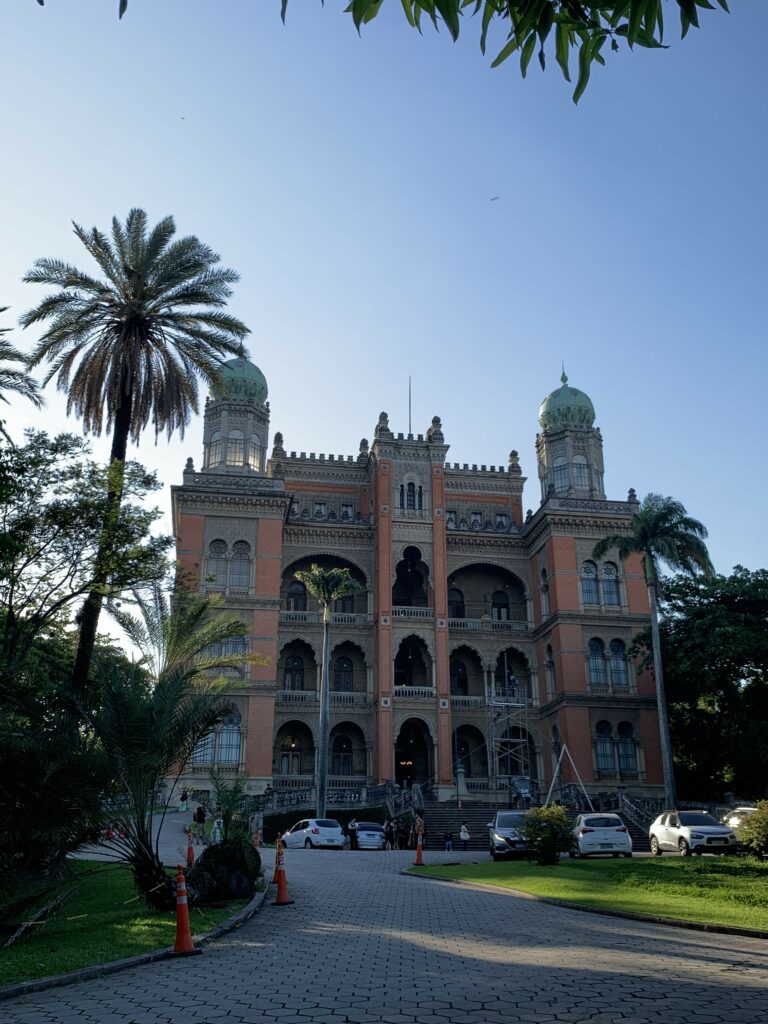
Fundação Oswaldo Cruz (FIOCRUZ) main building
Additionally, in collaboration with the NGO project “Heróis Contra Dengue” (Heroes Against Dengue), Steffen visited favelas to discuss local solutions for engaging children in community activism. As a science communicator for the NGO “IRESO e.V.”, he develops tasks designed from his and other research for students, such as using street-view imagery to plan field visits for mosquito breeding site removal or learning about citizen science projects like Mosquito Alert, which supports data collection for researchers and public health officials by mapping common mosquito breeding sites as well as species distributions. Through the initiative, children take on the role of “heroes,” educating their families and neighbors about the risks of mosquito-borne diseases, identifying breeding sites, and promoting actions to mitigate mosquito populations. This approach not only aims to empower children and provide them with a sense of purpose and belonging in their community but also helps strengthen their self-confidence and resilience against crime-related activities, which remain a pervasive aspect of daily life in Rio de Janeiro. This initiative is especially critical in areas often governed by trafficking gangs or militias, where traditional public health interventions are typically restricted.
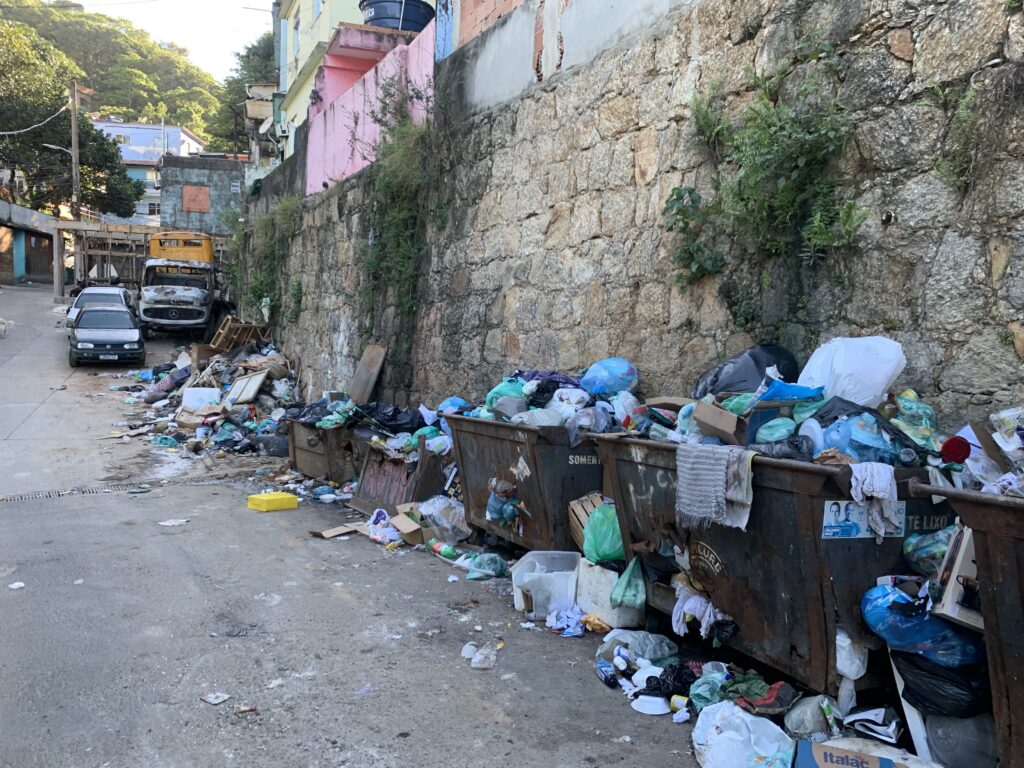
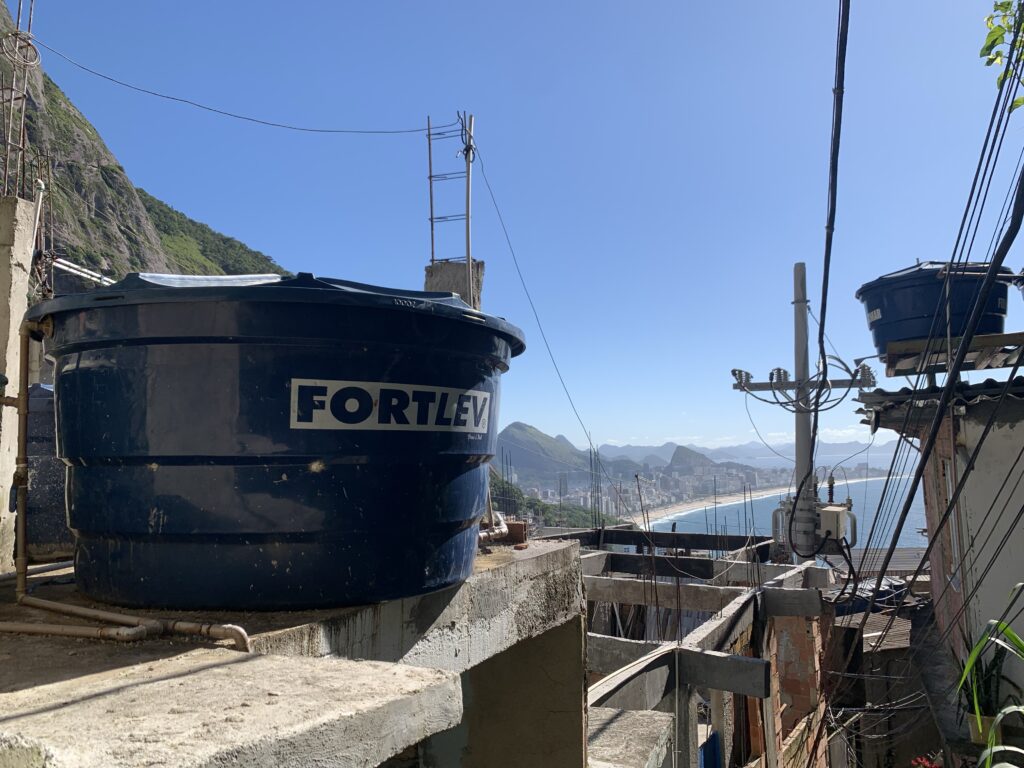
Common Aedes aegypti breeding site in the municipality of Rio de Janeiro, mapped by Steffen’s research via satellite and street view imagery.

Heróis contra Dengue
To keep up with future developments and releases related to this project as well as other efforts to advance geospatial technology in the mobility, humanitarian aid, and data analytics space, follow our social media channels and stay up to date on our blog.
Previous visit to Rio: https://giscienceblog.uni-heidelberg.de/2023/07/25/research-visit-rio-de-janeiro/



